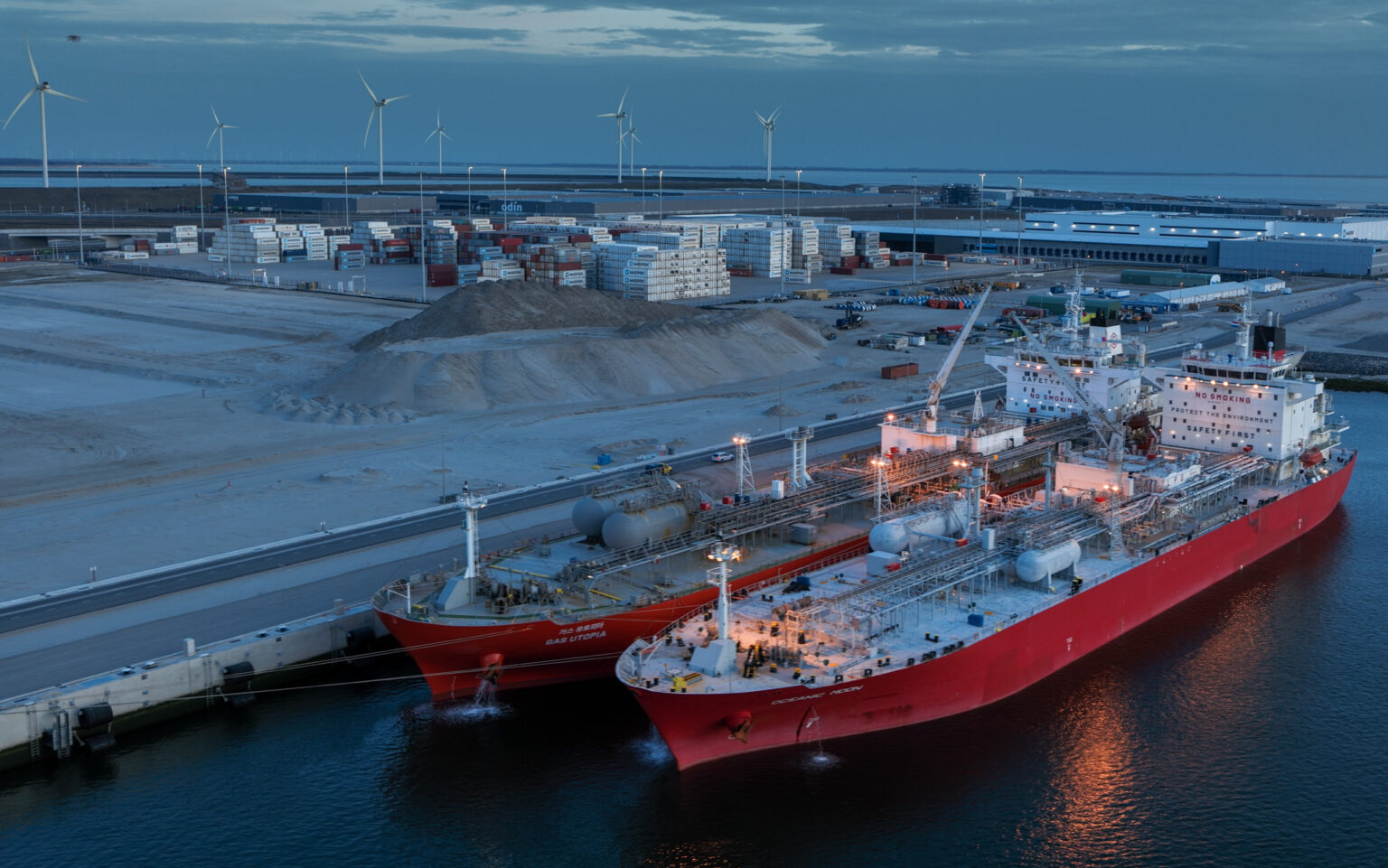Green methanol pitch
Greenpeace sponsored research backs synthetic methanol but highlights supply issues

Climate-neutral industrial alcohol, methanol, made with renewable electricity appears to be the most suitable synthetic fuel to decarbonise international shipping, researchers from the Institute of Maritime Energy Systems at the German Aerospace Centre (DLR) have found.
Switching to green methanol could reduce CO2 emissions by 96 percent over the entire life cycle of ships, the researchers said in a report commissioned by environmental group, Greenpeace.
“When comparing the options according to specifications and safety, storage and bunkering, emissions, availability of technology and regulations for use on board, methanol currently shows the greatest potential,” the report concluded. Unlike hydrogen or ammonia, methanol is easy to handle and technically ready for use in shipping. Moreover, existing ship engines can be easily converted, the authors said. Producing green methanol requires green hydrogen made with renewable electricity, and sustainable CO2 from renewable biogenic sources or from direct air capture (DAC). Electrification is not a viable option for heavy shipping, because the batteries would be prohibitively large.
However, the report also listed numerous problems afflicting the use of green methanol, for example the necessity to install tanks that are twice as large so that ships can cover the same distance as with fossil fuels. In addition, green methanol has hardly been available on the fuel market to date and remains very expensive. The report said that up to 5.7 million tonnes of green methanol will be needed per year for shipping in Germany alone.
According to the authors, several different fuels will be used in the shipping industry in the long run, not just green methanol. “It is unrealistic to expect that only one alternative solution will prevail in the shipping industry. It is to be expected that various fuel options will be available on the market and that the solutions will differ depending on the type of ship, route and numerous other parameters,” the report said.
Greenpeace said the IMO should adopt binding quotas for the use of alternative fuels to ensure that shipping decarbonisation picks up speed now. “And a CO₂ price is needed that reflects the climate benefits of green methanol compared to fossil fuels,” the organisation added.
Meanwhile ClassNK has issued an approval in principle (AiP) for design concept of a retrofitted Kamsarmax bulk carrier, converting it from conventional fuel to methanol dual-fuel, jointly developed by Tsuneishi Shipbuilding Co and Fonden Maersk Mc-Kinney Møller Center for Zero Carbon Shipping.
The Japanese classification society says its certification demonstrates the regulatory feasibility of the ship, serving as a meaningful step in advancing the transition of the existing fleet to alternative fuels, as bulk carriers of this size are widely operated today.
ClassNK carried out a design review of the design concept based on ‘Part A Guidelines for Ships Using Methyl/Ethyl Alcohol as Fuels (Edition 3.0.0)’ of the ‘Guidelines for Ships Using Alternative Fuels’ and examined the risk assessment through HAZID. ClassNK issued AiP upon confirming the feasibility of key design, including the arrangement of methanol fuel tanks and fuel supply systems, in terms of regulatory compliance.
Methanol Bunkering Licences in Singapore
The Maritime and Port Authority of Singapore (MPA) has opened applications for licences to supply methanol as a marine fuel in Singapore. This follows the finalisation of Singapore’s methanol bunkering licensing framework and standards, which incorporated input from over 50 proposals received under MPA’s Expression of Interest (EOI) launched in December 2023, as well as methanol bunkering trials and operations conducted in Singapore since 2023. Licensees are required to implement an? end-to-end methanol bunkering supply solution as bunker suppliers and bunker craft operators. This includes securing methanol supply to Singapore, implementing quality assurance plans, ensuring proper storage and safe handling of methanol, and establishing emergency response measures. They must also have the necessary manpower and expertise to carry out methanol bunkering operations in Singapore. Additionally, licensees are required to own and operate at least one IMO Type 2 chemical tanker
Licensees must supply methanol as a marine bunker fuel to vessels in Singapore during licensing period from 1 January 2026 to 31 December 2030. MPA says: “To support international shipping’s decarbonisation efforts, licensees must supply methanol that meets the specified carbon intensity on a well-to-wake basis, demonstrate a transparent and accurate chain of custody methodology to track emissions from source to delivery, and possess operational experience, readiness, and emergency response preparedness. Licensees will be required to meet the prevailing standards and measures at the national and International Maritime Organization level. Bunker players are also expected to adopt mass flow meters, digital bunkering, and the new standards for methanol bunkering in Singapore ahead of operations. MPA may invite licensees to work with MPA on suitable methanol bunkering pilots and exercises in 2025.”
Image Credit: Rotterdam Port Authority
30/05/2025
get
in touch

Constructive Media
Constructive Media
Hornbeam Suite
Mamhilad House
Mamhilad Park Estate
Pontypool
NP4 0HZ
Tel: 01495 239 962
Email: ibia@constructivemedia.co.uk

On behalf of:
IBIA London Office
Suite Lu.231
The Light Bulb
1 Filament Walk, Wandsworth
London, SW18 4GQ
United Kingdom
Tel: +44 (0) 20 3397 3850
Fax: +44 (0) 20 3397 3865
Email: ibia@ibia.net
Website: www.ibia.net

Emails
Publisher & Designer: Constructive Media
ibia@constructivemedia.co.uk
Editor: David Hughes
anderimar.news@googlemail.com
Project Manager: Alex Corboude
alex@worldbunkering.net
